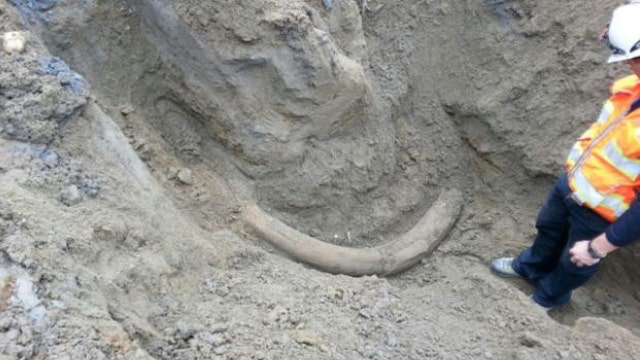Construction workers digging in Seattle's south Lake Union area have found a tusk from an ice age mammoth, according to the Burke Museum of Natural History and Culture.
KIRO-TV reports that the construction workers stopped digging when they found the fossil and called the museum. Since the fossil was found on private property, it's up to the landowner to decide what to do with the tusk.
Christian Sidor, curator of vertebrate paleontology at the museum, said Tuesday that museum experts have examined the fossil .
"We are confident that it represents a tusk from an ice age mammoth," Sidor said. “The discovery of a mammoth tusk in south Lake Union is a rare opportunity to directly study Seattle’s ancient natural history. As a public repository, the Burke Museum would be pleased to curate the tusk and provide access to scientists and others wishing to study it."
Sidor said the museum would excavate the fossil if the landowner grants permission.
According to the museum, the ancient elephant relatives lived in Washington until approximately 10,000 years ago and their fossils have been found throughout western Washington.
"It’s fantastic, it feels like it happened in my backyard," local resident John Warren told Q13Fox.com.
The Mastodon, a prehistoric relative of modern elephants that stood more than 12 feet tall, also roamed the area thousands of years ago, geologist David Williams told the station.
“Both of them were here. Both of them came in after the ice retreated," Williams said. "They were in slightly different environments within the broader landscape."
Williams noted that finding the teeth would have made it easier to identify the species.
“We find bones that are hundreds of millions of years old — to find something that’s 15,000 years, that’s a blink in geological time,” Williams said.
The Associated Press contributed to this report.
Click here for more from Q13Fox.com.

